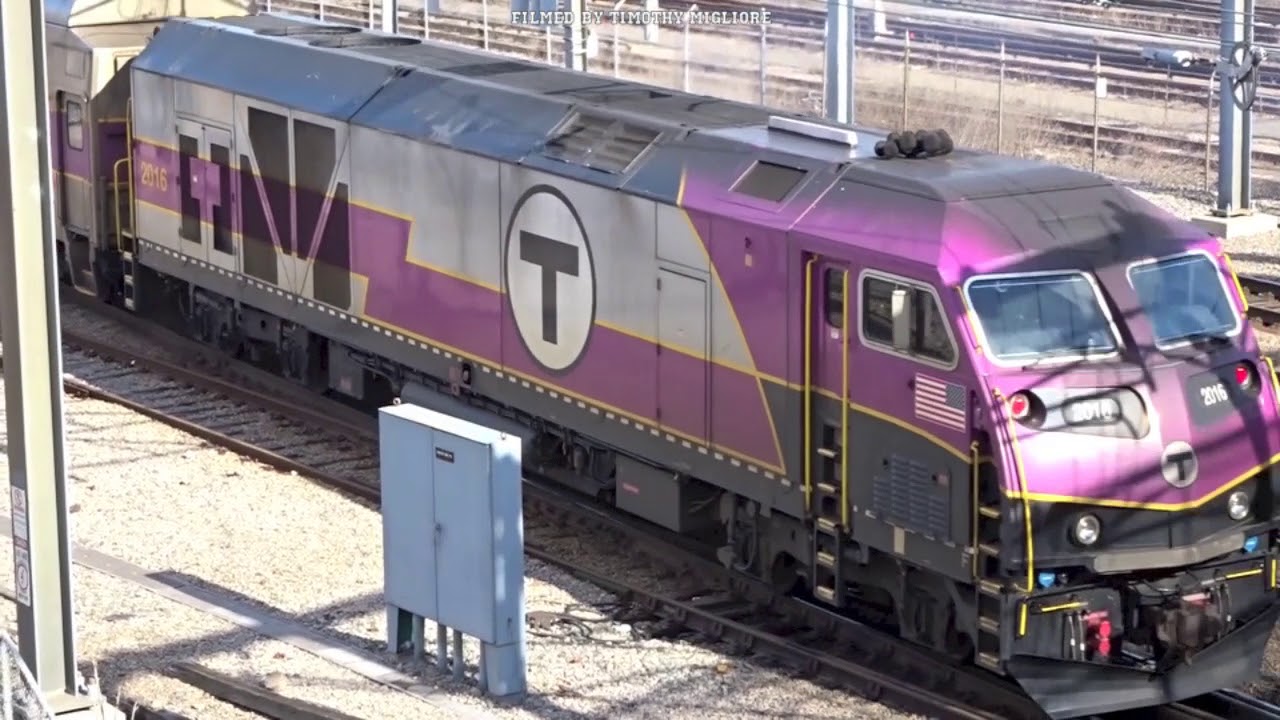The following is a press release submitted to SOURCE media
***
[broadstreet zone=”52093″]
BOSTON – The MBTA today, November 9, released a series of proposed changes to its transit service that are intended to match service to new ridership patterns resulting from the COVID-19 pandemic.
The proposed changes are part of the T’s Forging Ahead effort to define and protect its core essential transit services.
A letter from MBTA General Manager Steve Poftak to riders regarding the Forging Ahead process and the proposed service changes can be found online on the MBTA website. The public is also encouraged to view these proposals and participate in the public engagement process, which is now underway and run through December 4.
[broadstreet zone=”70106″]
This comprehensive public engagement process includes a series of virtual public meetings, a public hearing, a team of Community Liaisons who are already gathering feedback directly from riders, and an online comment form for customers to voice and share their thoughts with the T. Specific details of these proposals and the public engagement processes are available at mbta.com/ForgingAhead.
As a result of the decline in ridership that is similarly impacting transit agencies across the country, the MBTA is now only transporting 330,000 trips on an average weekday – but is continuing to run the same high levels of service as it ran to serve 1.26 million daily trips prior to the pandemic, an unsustainable level of service delivery.
“COVID-19 has had a significant impact on ridership and the MBTA is releasing these proposed changes to adjust to the realities created by COVID-19, while protecting service for those who depend on it most,” said General Manager Steve Poftak. “I want to reassure our riders that these service changes are not permanent, do not include any fare changes, and will not take effect immediately. We are carrying out a comprehensive outreach process and encourage all members of the public to provide comments and feedback, as we want to hear from riders to help us identify and protect the services that support transit-critical populations and communities.”
[broadstreet zone=”59984″]
The MBTA is proposing a series of service changes in addition to preserving its base-level service, or its minimum level of service as determined by the Fiscal and Management Control Board. The MBTA will continue to provide sufficient service for the current, reduced ridership on all modes except the ferry system, which is being proposed to be temporarily closed. The proposed base service levels are designed to ensure adequate capacity for all essential services as well as a reduced level of non-essential service that is still viable for most of those who are currently using the T. The T’s base service includes approximately eighty essential bus routes, The Ride, the whole of the rapid transit system including subway, and the Fairmont Commuter Rail line.
“The vast majority of MBTA service will continue, and these service adjustments are being proposed to preserve and protect service for those who depend most critically on the MBTA by reducing primarily non-essential services,” said Transportation Secretary and CEO Stephanie Pollack. “Using limited resources to operate nearly empty trains, ferries, and buses is not a responsible use of the funding provided to the MBTA by riders, communities, and taxpayers, and does not help us meet the transportation needs of our region. We look forward to working closely with the public to ensure we continue providing essential service and help the MBTA afford the growing service we will need to support our customers and communities in the future.”
[broadstreet zone=”61072″]
The proposed service changes announced today will not go into effect immediately. While some service changes on the Commuter Rail could take place as early as January 2021, the changes to Commuter Rail would be made in March, rapid transit changes would be made in spring 2021, and buses changes would happen later in the summer.
This will allow the MBTA to adjust the proposed basic service if warranted by changes in ridership and if additional, durable revenue becomes available.
Service levels will be continually reassessed based on the status of the state of emergency, commuting patterns, and ridership and fare revenue recovery in 2021 and beyond. The MBTA is also proposing service packages that will include options to increase service once ridership returns and the T’s revenue improves.
The MBTA is hosting a series of public engagement efforts that will run through December 4 to receive public feedback on the service changes that includes a series of virtual public meetings, and a public hearing to gather feedback directly from riders, and an online comment form for customers to engage with the T.
The T wants to hear from transit riders about the services people are using now, how often they are using them, and what their transit priorities are in order to shape the T’s decisions about protecting transit-critical services.
[broadstreet zone=”58610″]
The FMCB is scheduled to vote on the changes on December 7, so that planning can begin for making the changes in 2021.
Proposed service changes beyond the base-level service include:
- Rapid Transit:
- The Red, Orange, Blue, and underground Green Line stations are experiencing approximately ~120,000 gated entries on weekdays, which is about 24 percent of its pre-COVID numbers. Proposed service level changes for the Red, Orange, Blue and Green lines and Mattapan trolley include:
- Weekday and Saturday service will operate from 5 a.m. to midnight (currently until 1 a.m.) and Sunday service will operate from 6 a.m. to midnight (currently until 1 a.m.).
- Reduce peak frequency by 20 percent and reduce off-peak frequency by an additional 20 percent on all lines.
- The Green Line E Branch will terminate at Brigham Circle with customers able to transfer to Bus Route 39, which mimics E Branch service from Brigham Circle to Heath Street.
- The Red, Orange, Blue, and underground Green Line stations are experiencing approximately ~120,000 gated entries on weekdays, which is about 24 percent of its pre-COVID numbers. Proposed service level changes for the Red, Orange, Blue and Green lines and Mattapan trolley include:
- Bus:
- Buses are experiencing about 171,000 weekday boarding, which is approximately 41 percent of its pre-COVID ridership. Proposed service level changes include:
- All bus service will stop at midnight, though early service will continue on essential bus routes.
- Eighty essential bus routes will see an average change in service of just 5 percent and routes with high ridership will not be changed.
- Sixty non-essential bus routes will operate 20-30 percent less frequently.
- Approximately ten routes will be consolidated or restructured.
- Approximately twenty-five routes that served less than 0.5 percent of pre-COVID riders (about 1,700) will be eliminated.
- Buses are experiencing about 171,000 weekday boarding, which is approximately 41 percent of its pre-COVID ridership. Proposed service level changes include:
- Commuter Rail:
- The Commuter Rail is experiencing approximately 13 percent of its pre-COVID ridership with about 8.5 percent of its normal ridership during morning peak periods. As a result, the following changes are proposed (with the exception of the Fairmount Line):
- No evening service after 9 p.m.
- No weekend service (except for the Fairmount Line, which will be bused).
- Decreased weekday peak service and some midday service, reducing from 505 trains (fall 2019) to 430 trains.
- Close six (out of 141) stations based on low ridership, operational impacts, and availability of alternatives.
- Specific service levels by line will take into account ridership patterns from adjusted Fall 2020 schedules with more balanced service throughout day.
- The Commuter Rail is experiencing approximately 13 percent of its pre-COVID ridership with about 8.5 percent of its normal ridership during morning peak periods. As a result, the following changes are proposed (with the exception of the Fairmount Line):
- Ferry:
- Ferry ridership is approximately 12 percent of pre-COVID ridership, averaging 7 passengers per boat, and passengers have either bus or commuter rail service as an alternative. As a result, all Ferry service (F1, F2H, F4) is proposed to be stopped.
- Charlestown/Boston service (F4) has experienced very low COVID ridership and highly redundant bus service is available on Route 93 (an essential bus route which currently has minimal crowding and can support diverted ferry riders.
- Ferry ridership is approximately 12 percent of pre-COVID ridership, averaging 7 passengers per boat, and passengers have either bus or commuter rail service as an alternative. As a result, all Ferry service (F1, F2H, F4) is proposed to be stopped.
- Hull and Hingham service has also experienced very low ridership due to COVID-19 and passengers can use the Commuter Rail Greenbush line.
- The RIDE:
- With changes being proposed to the area and hours of operation of fixed route services, some RIDE trips may become “premium trips,” though RIDE service boundaries would not change.
- Some trips will be able to be booked forty minutes from request time instead of the current thirty minutes.

The public is strongly encouraged to submit feedback online and/or participate in any of the eleven virtual public meetings, including an Official Public Hearing, where input may be provided and questions can be asked of MBTA officials. At every Forging Ahead public meeting, either Transportation Secretary Stephanie Pollack, General Manager Steve Poftak, or one or more members of the Fiscal and Management Control Board (FMCB) will be present to listen to public comments. All public comments on Forging Ahead received during public meetings, provided to MBTA Community Liaisons during engagement sessions, or through the online comment form will be shared with members of the FMCB and senior executives, including the Secretary of Transportation and General Manager. MBTA Community Liaisons are also available by emailing publicengagement@mbta.com to schedule in-person, phone, or online meetings with individuals, local municipalities, or neighborhood organizations to provide information and seek community feedback. All details continue to be available at mbta.com/ForgingAhead.

